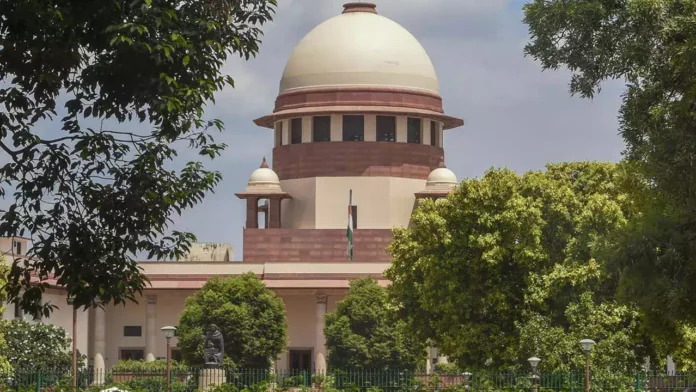The Supreme Court recently dismissed a Public Interest Litigation (PIL) that challenged the September 2021 Cabinet decision to relax payment terms of the adjusted gross revenue (AGR) due from Telecom Service Providers.
The PIL also sought the implementation of the judgment of the Supreme Court dated 01.09.2020, which held that the telecom companies who are liable to pay AGR dues shall make payment of 10% of the dues by March 31, 2021. The PIL also raised grievances against the reduction in bank guarantees, reduction in interest and waiving off of spectrum sharing charges that was introduced by the Centre through its cabinet decision.
Dismissing the PIL, the Court observed that it would have been more appropriate for the Central Government to file an application in the Supreme Court seeking modification of the directions passed on 01.09.2020. However, the Court refused to interfere with the Government’s decision to give relaxations to the telecom sector in view of “outstanding performance of the telecom sector in meeting the COVID-19 pandemic challenges”.
A bench of Justice B V Nagarathna and Justice Ujjal Bhuyan termed the impugned reforms a ‘well calibrated decision’ of the Union and opined that it would be improper to interfere with them for the sole reason that the Court had passed certain directions on 01.09.2020.
The Court said that it would not be right for the court to interfere in such matters of policy unless material is brought on record to show that it is unconstitutional or arbitrary in nature.
“..these are all matters of policy and decision-making which is on the basis of experts’ opinion and on emerging situations and exigencies, to be made in the interest of the welfare of the people of India having serious technical and financial implications and, therefore, have to be in public interest.”
The Apex Court noted that the huge surge in data consumption during the COVID-19 pandemic necessitated reform measures to boost proliferation and penetration of broadband and telecom connectivity. The Court was of the view that the reforms introduced by the Centre was justified in the light of the emergent needs in the midst of the pandemic:
“…in light of the COVID-19 pandemic that engulfed the world including India in the years 2020-2021 and the lifestyle of the people drastically changing on account of the precautions and preventive measures that had to be taken in order to save themselves from being afflicted by the pandemic which resulted not only in deaths but also post COVID-19 disabilities and ill health. As a result, the people depended heavily on the telecom sector and particularly on the TSPs in order to keep in touch with one another as there were lockdowns declared in the country in March, 2020 and for successive periods thereafter, in several places owing to the COVID-19 pandemic which necessitated what may be called “social distancing” and as a result there was “distant socialising”. In schools and educational institutions, and offices there was virtual study and work from home respectively. Offices were shut and classrooms were being conducted virtually. Even the Governments were run on virtual mode and we could emphasise that video conferencing facility and virtual mode was adapted quickly not only by various stakeholders such as Government offices, schools, other private organisations but most significantly by law Courts which did not cease to function during the COVID-19 pandemic.”
The petitioner contended that the Centre’s decision was is in favour of the ‘super rich’. It was argued that the reforms were a compromise to the State Exchequer and against the interests of the common man. The Cabinet’s decision interferes with the payment schedule set by the Supreme Court and directly benefits the Annual Gross Revenue defaulters, it was argued.
“Despite the order passed by this Court on 01.09.2020, the need was felt by the Central Government for bringing measures and reforms in the telecom sector and in order to make available pertinent reliefs for the said sector, the impugned Cabinet decision was taken. Therefore, taking an overall view of the matter, we feel that it would not be justified on our part to interfere with a well calibrated decision of the Cabinet solely on the ground that this Court had earlier passed certain orders on 01.09.2020.” the Apex Court said.
In October 2019, the Court had held that AGR dues from telecos would include non-telecom revenue due to of which the telcos were mulcted with dues of over ₹92,000 crores as license fees.
In 2020 judgment, Court allowed the telecom companies to clear the dues in a staggered manner over ten years.
The Cabinet Decision of September 2021, in an effort to provide relief measures for telecom service providers, introduced certain structural and procedural reforms. Some measures include:
- Exclusion of Non-telecom revenue on prospective basis from the definition of Adjusted Gross Revenue (AGR)
- Reduction in Bank Guarantees requirement
- Interest rates/penalties for delayed payments were reduced/waived off
- For future auctions the spectrum tenure was increased from 20 to 30 years.
- 100% Foreign Direct Investment (FDI) under automatic route was permitted in the Telecom Sector
Case Title: Anshul Gupta V. Prime Minister Office, Writ Petition (Civil) No. 635/2023



